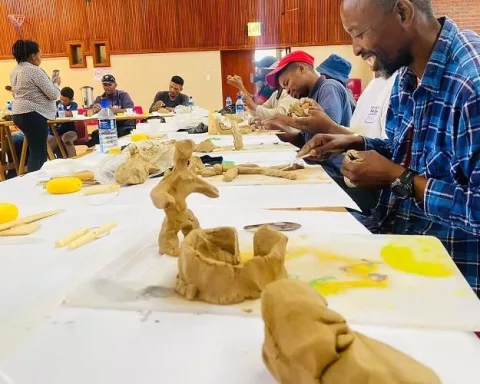South Africa is taking steps to address the high rate of gender-based violence (GBV) in its higher education sector. The Department of Higher Education and Training is working with organizations like Higher Health to implement sustainable systems and controls while also targeting men and boys through initiatives like the Transforming MENtalities Summit to modify their attitudes and behavior towards women and girls. Addressing GBV requires a comprehensive approach that targets social, cultural, and structural factors alongside relationships between men and women.
How is South Africa addressing gender-based violence in higher education?
The South African Department of Higher Education and Training is taking action to combat gender-based violence and femicide in the higher education sector. The Transforming MENtalities Summit targeted men and boys to modify their behavior towards women and girls. Additionally, the department partnered with Higher Health to implement sustainable systems and controls. Addressing GBVF requires a comprehensive approach targeting social, cultural, and structural factors, alongside relationships between men and women.
The South African Department of Higher Education and Training is taking action to address the worrying rate of gender-based violence and femicide (GBVF) within the higher education sector. Given that ten percent of reported rape cases involve young women in this sector, it is crucial to find innovative ways to tackle this crisis. Dr. Blade Nzimande, the Minister of Higher Education and Training, has called on men and boys to play an active role in cultivating healthier relationships with women and girls.
Transforming MENtalities Summit
To address the underlying causes of violence against women, the [Transforming MENtalities Summit](https://capetown.today/transforming-mentalities-summit-2023-addressing-the-root-causes-of-gender-based-violence/) was recently held in Ekurhuleni, Gauteng. The summit specifically targeted men and boys, focusing on modifying how they interact with women and girls. Minister Nzimande emphasized the need to free men and boys from outdated and dominant positions, insisting that they must unlearn old habits and establish new ways of relating to the women in their lives.
The United Nations Educational, Scientific and Cultural Organization (UNESCO) has also highlighted the importance of involving men and boys in conversations about gender equality. Minister Nzimande believes that revisiting stereotypes and norms is essential for moving towards a gender-equal society. By reshaping relationships between women and men, we can make significant progress toward a more equitable world.
The Scope of the Problem
South Africa has been tragically dubbed the “rape capital of the world,” with a woman raped every three hours. In the first quarter of 2022, 10,818 rape cases were reported. Additionally, the rate at which women are killed by intimate partners in South Africa is five times higher than the global average. GBVF is a deeply ingrained issue that affects homes, workplaces, cultures, and traditions.
Over 2.5 million youth are enrolled in South Africa’s higher education sector, with 51% being female. The fact that ten percent of all reported rape cases involve young women in this sector is alarming. Equally concerning is that only one in ten women report a rape case. To address GBVF within the Post School Education and Training sector, the department has partnered with Higher Health in recent years to implement sustainable and impactful systems, controls, infrastructure, and safety nets.
Higher Health’s Efforts and a Multifaceted Approach
Higher Health operates in eight key areas to promote the health and well-being of students across South Africa’s 26 public universities, 50 technical and vocational training colleges, and nine community education and training colleges. The organization is currently collaborating with the National Prosecuting Authority to develop protocols on the statement of complaint, whistleblowing, and other legislation.
Higher education institutions are part of the larger society, making it difficult to extricate them from the violence prevalent in communities. Addressing GBVF requires a comprehensive approach, targeting not only the relationships between men and women but also the social, cultural, and structural factors that contribute to this violence.
The Transforming MENtalities Summit is just one of many initiatives aimed at combating GBVF in South Africa. By involving men and boys in conversations on gender equality and challenging the way they relate to women and girls, we can begin to dismantle the harmful norms and stereotypes that perpetuate violence against women. Ultimately, constant dialogue and action are necessary to reshape society for the better, creating a more just and equitable future for everyone.
1. What is gender-based violence (GBV) in the higher education sector in South Africa?
Gender-based violence (GBV) in South Africa’s higher education sector refers to all forms of violence, abuse, and harassment that women and girls in universities, colleges, and other higher education institutions face due to their gender.
2. What steps is South Africa taking to combat GBV in the higher education sector?
The South African Department of Higher Education and Training is working with organizations like Higher Health to implement sustainable systems and controls. Additionally, the department partnered with Higher Health to implement sustainable systems and controls. The Transforming MENtalities Summit targeted men and boys to modify their behavior towards women and girls. Addressing GBVF requires a comprehensive approach targeting social, cultural, and structural factors, alongside relationships between men and women.
3. What is the Transforming MENtalities Summit?
The Transforming MENtalities Summit is an initiative by the South African Department of Higher Education and Training that targets men and boys specifically to modify their attitudes and behavior towards women and girls. The summit aims to address the underlying causes of violence against women by reshaping relationships between men and women.
4. What is Higher Health, and what role does it play in combating GBV in the higher education sector?
Higher Health is an organization that operates in eight key areas to promote the health and well-being of students in South Africa’s higher education sector. The organization is collaborating with the National Prosecuting Authority to develop protocols on the statement of complaint, whistleblowing, and other legislation. Higher Health is working with the Department of Higher Education and Training to implement sustainable systems and controls to combat GBV in the higher education sector.
5. What is the scope of the GBV problem in South Africa?
South Africa has been dubbed the “rape capital of the world,” with a woman raped every three hours. In the first quarter of 2022, 10,818 rape cases were reported. Additionally, the rate at which women are killed by intimate partners in South Africa is five times higher than the global average. GBVF is a deeply ingrained issue that affects homes, workplaces, cultures, and traditions.
6. What is the importance of involving men and boys in conversations about gender equality?
Involving men and boys in conversations about gender equality is crucial for addressing the underlying causes of violence against women. By reshaping relationships between women and men, we can make significant progress toward a more equitable world.
7. What is the role of social, cultural, and structural factors in addressing GBV in the higher education sector?
Addressing GBV in the higher education sector requires a comprehensive approach that targets social, cultural, and structural factors alongside relationships between men and women. This approach acknowledges that GBV is a deeply ingrained issue that affects homes, workplaces, cultures, and traditions.
8. What is the role of constant dialogue and action in combating GBV in the higher education sector?
Constant dialogue and action are necessary to reshape society for the better, creating a more just and equitable future for everyone. Initiatives like the Transforming MENtalities Summit and Higher Health’s efforts are crucial, but they must be part of a broader and sustained effort to combat GBV in the higher education sector and beyond.












